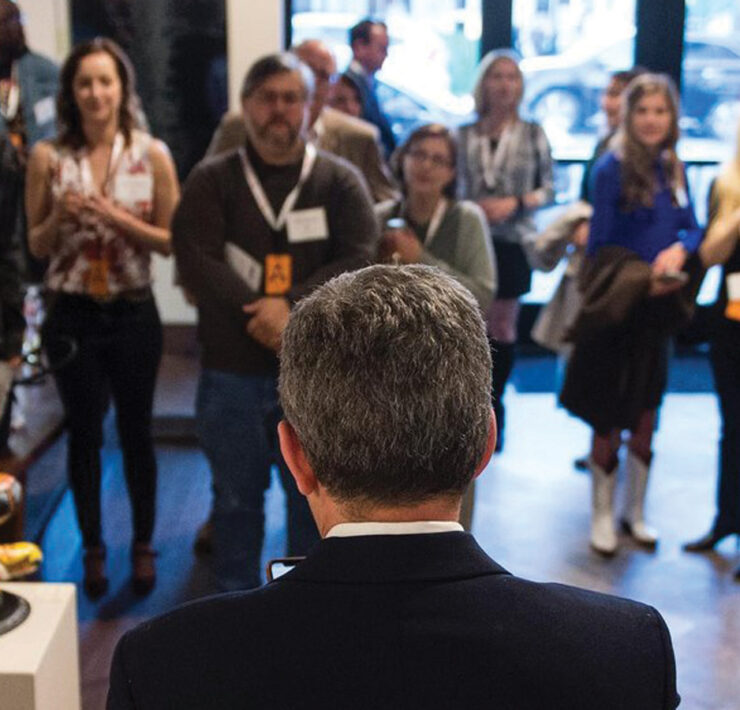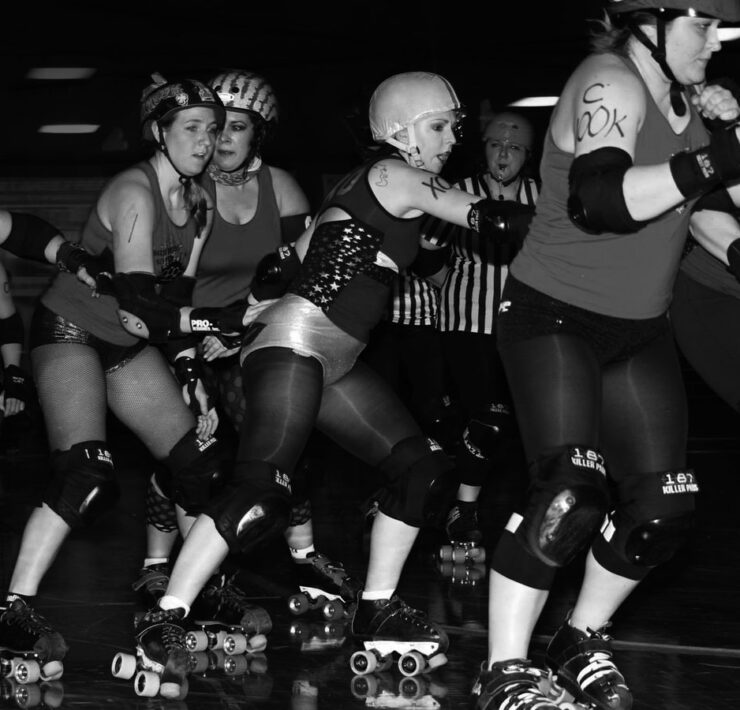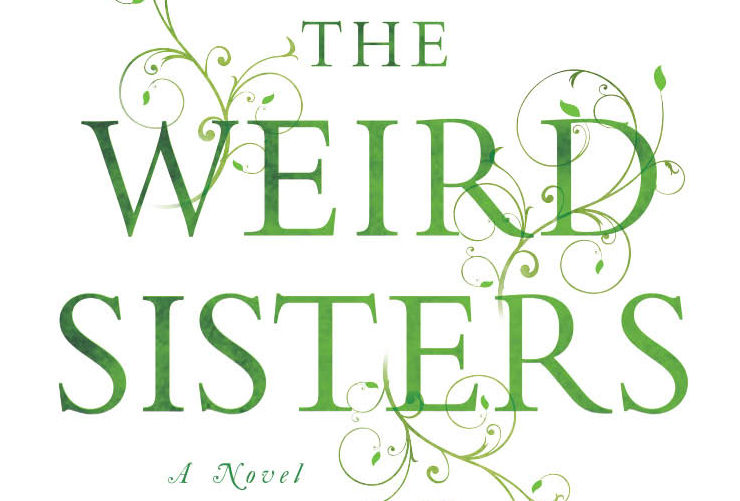The Write Stuff: Unbound Book Festival Celebrates Ninth Year
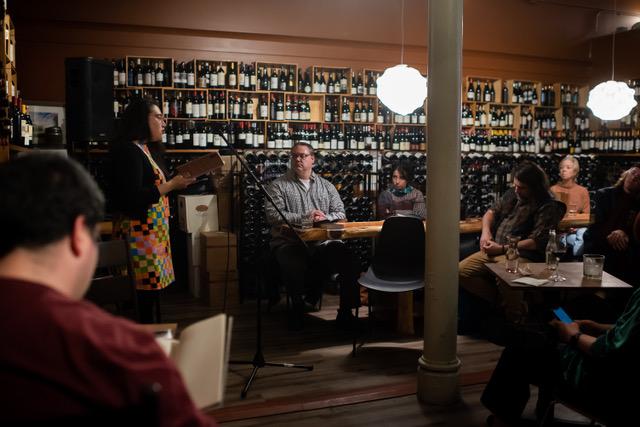
Word nerds rejoice! Our time is here.
Now in its ninth year, the Unbound Book Festival promises more than a mere prance through the pages. For four glorious days, April 18-21, a bevy of world-class authors — those names you see in your Goodreads recommendations and artfully arranged in bookstore displays — will descend upon Columbia for a series of readings, panels, and workshops.
TEDx can’t touch this
Even before the pandemic pushed us all to Zoom, there was a major move toward digitizing connections. TED Talks and the proliferation of podcasts meant anyone, anywhere, could access the inner workings of their favorite thinkers at any time.
And while the lockdown era emphasized technology’s ability to bridge distances, current conversations focus on the value of bringing people together for in-person connection and collaboration. Unbound provides proximity to compelling writers, and that’s something that can’t be duplicated by recording or webinar.
“Whether it’s an author, whether it’s an actor on stage, whether it’s an opera singer belting out arias or a jazz musician — there’s something about being in the room when the art is being created,” Unbound Executive Director Alex George says. “The magic is happening that you will never be able to recreate.”
As an example, he describes the electrifying experience of hearing the PEN Award-winning Ross Gay read his poem “Be Holding” at last year’s festival.
“He read the whole thing, from beginning to end. It took an hour,” George says. “The place was packed, and you couldn’t move. Hearing him talk was one thing, but it was this communal experience, like the person sitting next to you is also having the same big feelings that you are.”
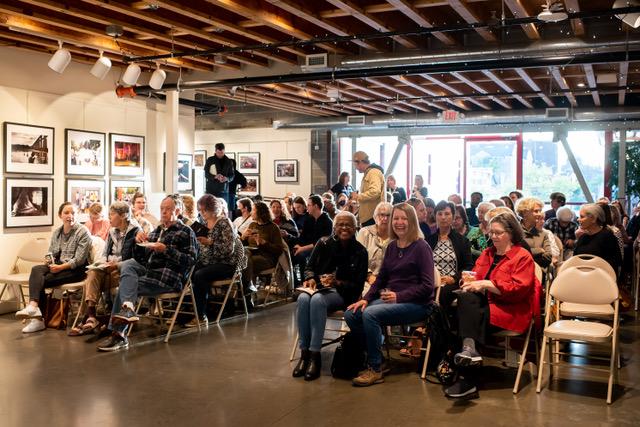
“Totally starstruck”
From the get-go, Unbound has been a who’s who of literary luminaries. The festival’s inaugural keynote speaker, Michael Ondaatje, wrote The English Patient, a World War II epic that bagged him the Booker Prize and later was adapted into an Oscar-winning film.
George admits getting Ondaatje was a down-to-the-wire feat requiring significant logistical maneuvering and maybe a bit of luck. But that first festival was a smash, which has made it considerably easier to bring in world-class names like Salman Rushdie, Zadie Smith, and George Saunders.
“These are titans of world literature, and it is such a thrill,” George says. “I’m totally starstruck by all these people.”
This year’s keynote speaker, Emily St. John Mandel, is no stranger to Columbia. Her first three novels were published by Unbridled Books, whose co-publisher Greg Michalson is based here. Her fourth novel, Station Eleven, was chosen as Daniel Boone Regional Library’s One Read selection in 2015.
The novel describes the outbreak of a highly contagious, highly lethal virus. After most of the world gets wiped out, the survivors re-civilize by scavenging resources and cultural touch points.
In an interview with Amy Wilder, then writing for the Columbia Daily Tribune, Mandel had this to say: “I was very aware of not particularly wanting to write a horror novel. I was more interested in what comes next, after the period of mayhem and chaos and horror that I assume would happen, immediately following the final collapse.”
Those who stumbled upon the story — either in book form or its HBO adaptation — during the pandemic might have marveled at Mandel’s prescience. I, for one, liked to imagine her phoning Margaret Atwood, a fellow Canadian whose speculative fiction has earned her a reputation as something of a seer, to ask: “How do you live with knowing the future?”
George says past keynote speakers have spoken broadly about the craft of writing as opposed to focusing on a single book, but he anticipates the audience will be most eager to dive into Station Eleven — in part because it’s a stellar story on its own merits but also because of its parallels to our recent lived experiences.
To further facilitate this conversation, Mandel will be joined by another literary heavyweight whose work explores similar themes.
“She’s being interviewed by Sequoia Nagamatsu, who wrote How High We Go in the Dark, which is also about plague,” George says.
The keynote is a free ticketed event.
Beyond the book reading
The main festival program features a series of panel discussions, which are free and open to the public. Sitting in sometimes feels like joining a “dream dinner party” — you know, that game where you name five famous figures you’d like to join you at the table. But what do you do when you have forty-three writers coming into town? How do you decide who sits at which table?
“We have this brilliant programming committee,” George says. “They read vastly and differently and widely.”
Members of this committee — many of whom are writers themselves — can identify common themes across genres and oeuvres.
Sometimes, these emerging themes point to salient social issues.
“Books don’t exist in a vacuum. We don’t exist in a vacuum. So, we want to reflect what’s going on,” George says.
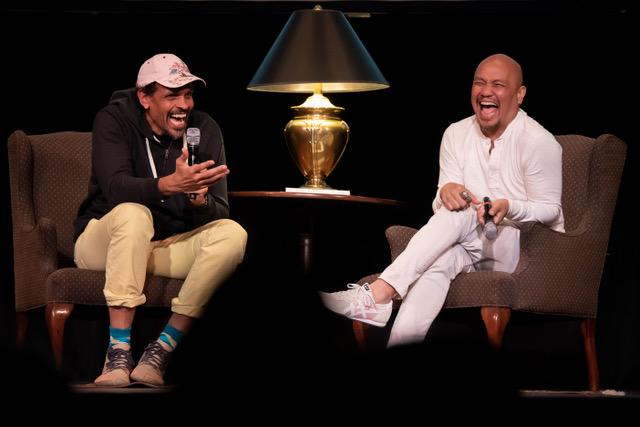
This year’s festival includes panel discussions on such topics as gun violence, propaganda, and the value of public libraries.
Other times, writers’ expertise and life experiences call for an exploration of a topic. For example, in a panel called “The Things They Created,” Jerri Bell, Brian Turner, Dewaine Farria, and Matt Gallagher will discuss how their military service influenced their work as writers.
Another panel, “Kitchen Traditions Old and New,” brings together cookbook authors to dig into the ways culture and family influence what we find on our plates.
Other times, certain themes make themselves apparent. During a panel called “Mythwesterners,” Erika Bolstad, Taylor Byas, and Bonnie Jo Campbell will discuss Midwestern folklore and the ways it reveals truths of self and society.
George is especially looking forward to a panel called “Found in Translation,” featuring Idra Novey, Philip Metres, and Keven Prufer in a conversation on the nuanced art of translating a masterwork into new tongues.
Oh, and some of these panels can get spicy. Taylor Byas, Eliza Smith, and Jubi Arriola-Headley will explore the intricacies of writing intimacy in a panel called “Let’s Talk About Sex.”
Meow.
Work and Play
A celebration of craft is a big part of what Unbound is about, and the event features on Sunday an all-day writer’s workshop — called Write On! — where aspiring authors can learn more about forming a solid practice as well as the ins and outs of the publishing industry.
But hey, at its heart a festival is a party. This year’s Unbound kicks things off on Thursday with a LitCrawl, presented in partnership with LitQuake, which will take revelers through a pub-crawl style series of mini author events.
Psst …
Want in on a secret? Obviously, you can attend any of these panels and readings to hear these writers speak.
You can stick around after and exchange a few words with them. George says that when the planning committee is deciding whom to invite to the festival, there is a “No A******s” policy.
But if you’d like to spend some real quality time with one of your favorite writers, you can volunteer to be an airport driver. Volunteer slots are filled for this year’s festival, however, there’s still a “waitlist” for any last-minute cancellations … and now is a great time to get in early on next year’s opportunities.
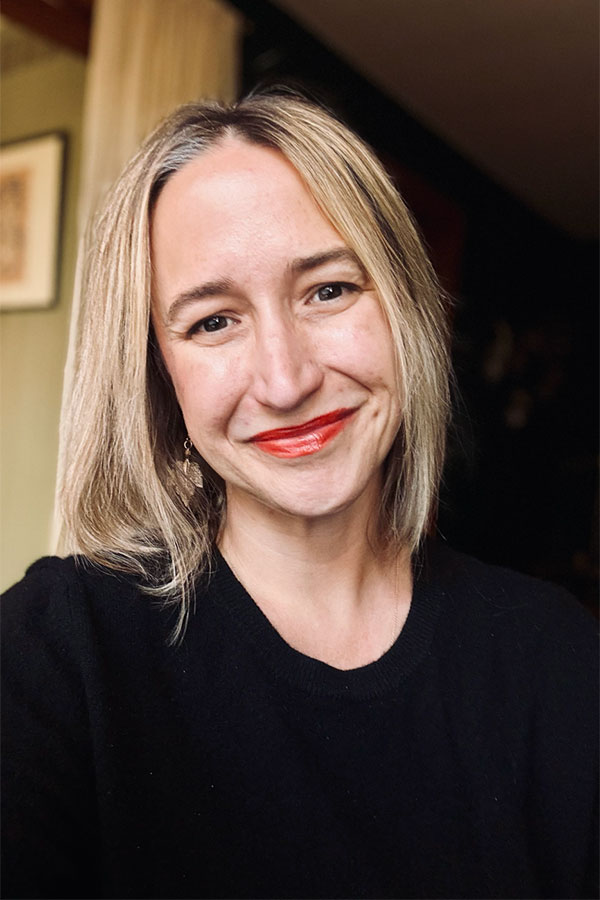
ABOUT THE WRITER
Caroline Dohack is a fashion editor turned tech writer. Either way, she loves talking about what’s new and what’s next. Her work has appeared in The Columbia Daily Tribune, Missouri Life Magazine, and The Hustle, and she’s held posts with the Stephens College fashion program, Dell Technologies, and a number of startups.
She and COMO Magazine editor Jodie Jackson Jr. have co-authored two published short stories.



